At record rates, `climate extremes` threaten the future of the Middle East
The world, and especially the Middle East, is witnessing a lot of contradictory climatic conditions. While the year 2021 was considered among the hottest years ever, the Middle East and North Africa recorded record temperatures, some countries in the region are experiencing low temperatures, as regions in Saudi Arabia recorded Lowest grades in 30 years.
And the Earth's temperature recorded a rise during 2021, to become the sixth warmest year ever, according to temperature indicators issued by the US space agency NASA and the National Oceanic and Atmospheric Administration.
Some experts in the field of meteorology and climate research believe that the weather conditions in the region in recent days are familiar individual cases, while others believe that they reflect a future that carries "more extreme" and "out of the ordinary" scenarios.
"extreme phenomena"
The founder of "Arab Weather" and an expert in the field of meteorology, Muhammad Al-Shaker, says that what is happening today is a result of climate change, noting that the term "global warming" may not reflect the "extreme" weather conditions as it should.
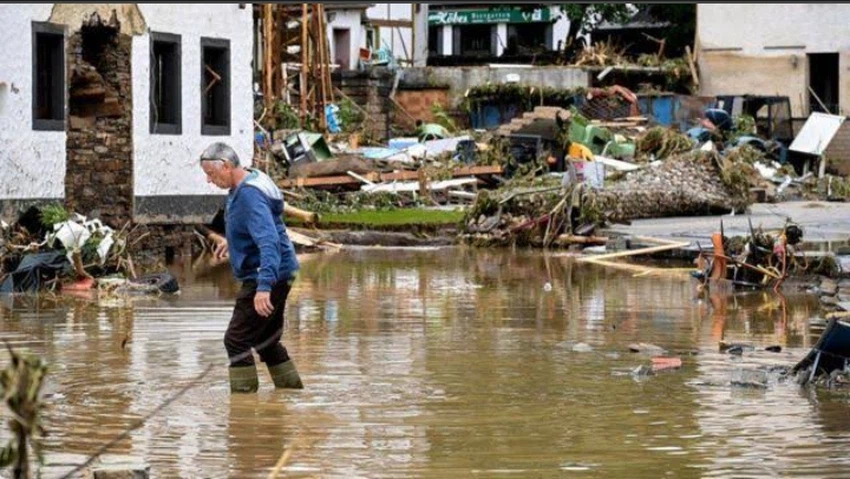
In his speech to Al-Hurra, Al-Shaker indicated that “climate change is in part a rise in temperatures in some countries and in other countries that are experiencing climatic extremism, and this does not mean that other regions may witness a decrease in temperatures,” but rather that “there are weather phenomena.” more extreme."
Al-Shaker believes that climate change causes the emergence of both cold and heat waves, and that it is not governed by certain regions over others, noting that "the Middle East for this year is within the regions of cold waves."
The former Director of the Department of Disaster Reduction at UNESCO and an expert on natural disasters and the effects of climate change, Dr. Badawi Rahban, confirms that "global warming" is the correct term to denote the effects of climate change, and it means an increase in the temperature of the planet in general, and that the planet has increased in temperature by 1.2 degrees Celsius. over the past 30 years, stressing that extreme cold temperatures are also a reflection of global warming.
Rahban said, in an interview with Al-Hurra website, that the latest report of the Intergovernmental Panel on Climate Change (IPCC), issued on August 9, "explained that climate change has become causing extreme weather factors or phenomena, such as storms, floods, heat waves and desertification, and adds" The frequency of these extreme climatic factors will gradually increase."
See what the world could look like at different levels of warming in the coming decades.
+1.5°C
+2°C
+3°C
+4°CCheck out the #IPCC Working Group I #InteractiveAtlas
https://t.co/1Hk4TD1GVr #IPCCAtlas #IPCCData #ClimateReport @predictia @IFCA_CSIC_UC pic.twitter.com/j6QVcXrIIx— IPCC (@IPCC_CH) December 17, 2021
And at the lowest number recorded in Saudi Arabia in 30 years, the city of Turaif, in the north of the country, witnessed, on Wednesday, 6 degrees below zero, while a polar wave hit a number of countries in the Middle East.
During the past year, the Middle East and North Africa region witnessed a record rise in temperatures, and scientists say that the region, which mainly suffers from great water scarcity, is witnessing a rise in temperatures that is twice the global average, as it records a rise of about 0.45 degrees Celsius every decade, Since the eighties of the last century.
Rahaban believes that what the region is witnessing is due to "extreme phenomena", as "there is more cold in some areas, and other areas are experiencing more heat waves.
In a 2018 report, the Intergovernmental Panel on Climate Change stated, “Climate change leads to changes in frequency, intensity, area, duration and timing of weather and climate variability, which can lead to unprecedented extremes.”
** The commission confirmed the lack of studies "that investigate the characteristics of heat and cold waves... compared to those that monitor the intensity and frequency of those waves on cold and hot days and nights."
Something out of the ordinary?
Al-Shaker said that what the region is witnessing is currently witnessing a record drop in temperatures, "it is a 100 percent normal thing, it happens once every ten years, and there is nothing out of the ordinary," stressing that "such weather events happen from time to time."
He points out that "as long as the weather is present in the climatic record frequently, that is, 3 or 4 times, this is part of the region's climate," but added, "If this weather was not recorded in the last 50 years, then this is another issue," inferring what It was recorded by the Saudi city of Tarif, on Wednesday, saying: "Since it was recorded once 30 years ago, this is an existing phenomenon, and this means that it is part of the region's climate."
He explains, "For example, if a hurricane struck Oman, and we looked at the cases recorded earlier, we will find that the Sultanate was hit by hurricanes before, and therefore the presence of a hurricane does not necessarily mean that this is due to climate change, but if we find that Oman, during the last ten years, has been subjected to ten hurricanes when Comparing it with the previous decade, this indicates that there is a change, so the change is calculated according to a certain period of time and not according to a single case.
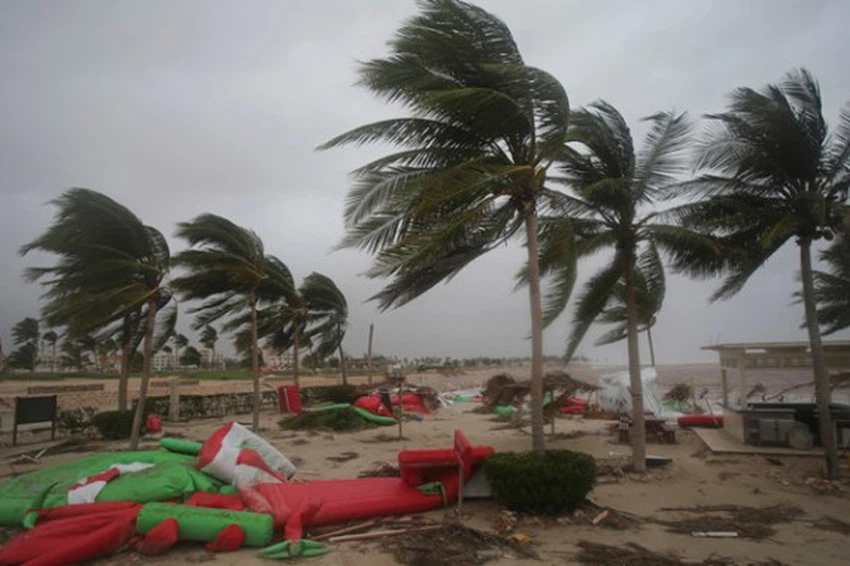
This reasoning is supported by monks by saying that judging that a particular climatic phenomenon is linked to climate change needs data that are collected over a certain timetable, and he explains: “If we assume that Paris recorded 12 degrees Celsius on January 19, while it is usually on this date that it is less than Therefore, and I concluded that this one event is the result of climate change, then I would be exaggerating it, and hasty to analyze things.”
He explains, "But if you say that Paris recorded, in January 2020, 12 or 15 degrees Celsius instead of 10 degrees, for example, but that was also recorded in 2005 and 2009... So there is something abnormal, and if the matter is repeated in 2025, this is a matter related to climate change.
Monks argue that one case is not enough to judge it as a phenomenon of climate change, but when we witness heat waves and fires in Canada, "there is certainly something out of the ordinary, and it should arouse our scientific curiosity," and he says: "I cannot judge that individual cases It is linked to climate change, but at the same time I must not rule it out."
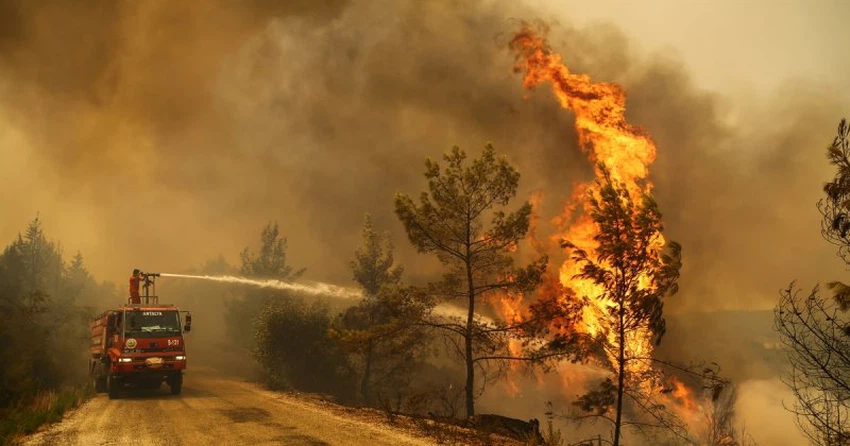
Canada witnessed an exceptional heat wave, last summer, which caused the death of several people, and the state established several cooling sites and advised citizens to stay at home.
Middle Eastern countries are 'unviable'
Shaker says that there are many assumptions about the climate of the Middle East, adding, "There are scenarios that expect the region to witness severe heat waves that may make living in it difficult."
Al-Shaker believes that "increasing climate extremism is the biggest challenge facing the Middle East, where it will witness severe and recurring weather phenomena, the most important of which are floods, torrential rains, heat waves and cold waves, these three things will be high and strong."
Monks also confirmed that "the intensity and strength of the extreme factors will become more high," adding that some US states, such as Florida, which is experiencing relatively high temperatures even during the winter season, recently witnessed heavy snow.
He adds that some areas will already witness a severe winter, while during the summer we will witness unusual heat waves, and we see this in the Gulf, such as the floods that the region witnessed weeks ago.
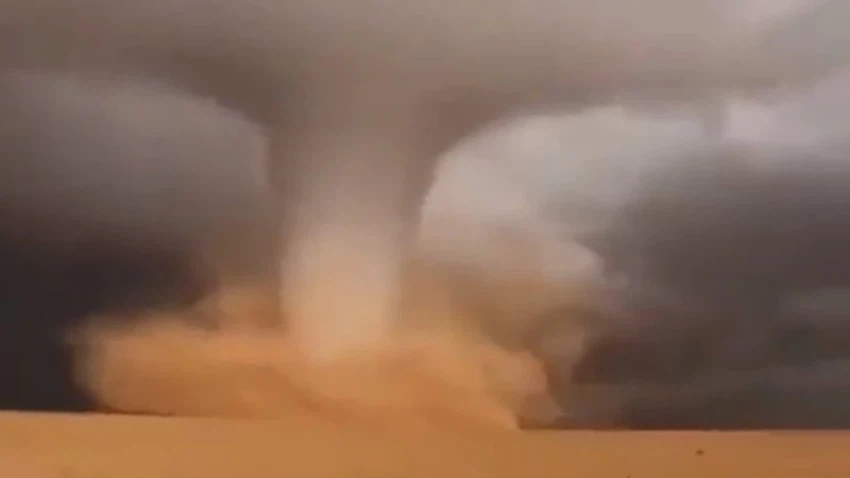
He noted that extreme phenomena will continue to gradually radicalize, this is what we observe and this is what we have been studying for years, and expectations indicate that what we observe today will increase in the future, and according to the German Max Planck Institute, many cities in the Middle East may become virtually uninhabitable before the end of the century .
Jos Lelieveld, an expert on Middle Eastern and Mediterranean climate at the Max Planck Institute, told Foreign Policy last August that the Middle East has overtaken the European Union in greenhouse gas emissions even though it is "particularly severely affected" by climate change. .
Liliveld added: “In many cities in the Middle East, temperatures have risen dramatically by over 50°C. If nothing changes, cities may be exposed to temperatures of up to 60°C in the future, which would be dangerous for those without Access to air conditioners.
Al-Shaker does not support these studies, and says that they are “illogical” and that they are “just computer simulations and assumptions, which may be true in the end, but we cannot say that the regions of the Middle East will not be habitable after 40 years, because these simulations need to be proven and must Let's test it to make sure it's healthy."
As for the monks, he asserts that these indicators of studies indicate that climate change may cause the displacement of the population of the Middle East, “they will need air conditioning day and night, because the human body will not bear” the high temperatures in the future.
Al-Shaker added, "In my opinion, climate change in the world is more frequent in climatic conditions that are considered more severe and severe, whether it is rain, snow or warmth, and this is what should be focused on, in how to establish an infrastructure for the meteorological sector in the Arab regions." The researchers expected that the Middle East and North Africa region "will be strongly affected by global warming, which may increase in hot and dry conditions", which is already characterized by it.
Researcher Piero Leonello stated, in a 2012 study, that, with regard to the Mediterranean region, "this great sensitivity to climate change can be understood as a result of the region's location, which mediates two extremes, between the dry climate of North Africa and the temperate and rainy climate of central Europe, making it vulnerable climate shifts caused by climate change.
"Infrastructure"
Al-Burhan affirms that it is “obligatory from now on, especially on the Arab countries and the Gulf states to adapt to the effects of climate change, which is considered a reality,” by reconsidering how to build infrastructure, design homes, and urban planning.
“We must change our view and build everything properly,” Rahban says, citing the example of cyclone “Shaheen” that hit the Sultanate of Oman last October. “The countries of the region must reconsider their infrastructure, in addition to changing the idea of building standards and designs. At least 12 people died in tropical cyclone Shaheen in the Sultanate of Oman, causing floods and landslides.
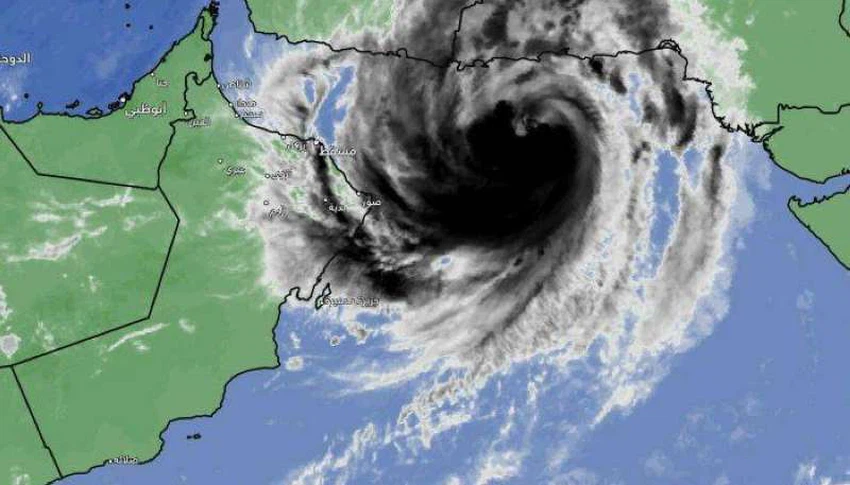
Al-Shaker also stressed the importance of the Middle East countries setting "priorities", including "how to protect the lives and property of these regions, because they lack early warning systems for severe weather phenomena caused by climate change."
For his part, Al-Shaker believes that "the infrastructure of the Sultanate of Oman could absorb one hurricane every ten years in the past, and now the infrastructure is suitable to receive ten cyclones within ten years, after investing in and developing the infrastructure to face frequent and more severe weather phenomena." .
He says that the Sultanate has "matched world countries", in dealing with the last three hurricanes of this size and intensity.
Monks insist on the need to provide designated areas for storing surplus water from rain and cyclones, and to allocate green spaces, adding, "Concrete should no longer belong to construction," noting the importance of establishing green cities to adapt to the coming heat waves.
Arabia Weather App
Download the app to receive weather notifications and more..



